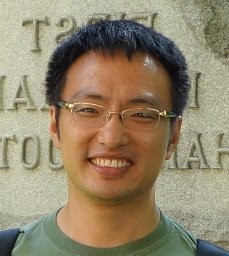Events
DMS Analysis and Stochastic Analysis Seminar (SASA) |
| Time: Mar 13, 2024 (10:00 AM) |
| Location: 328 Parker Hall |
|
Details:
Speaker: Le Chen (Auburn University) Title: Surface Growth Models with Random Tetris Pieces
Abstract: It is known that the fluctuations of the surface growth models fall into a few universality classes. The most famous one is the KPZ universality class, arising from the Kardar-Parisi-Zhang (KPZ) equation, which is a stochastic heat equation, driven by a nonlinear gradient term and a space-time white noise. The equation was proposed in 1986, and since then, the study of this equation has produced one Fields medal (Martin Hairer, 2014) and one Nobel physics prize (Giorgio Parisi, 2021). Various discrete models demonstrate the same scaling limit as the KPZ universality class, including the ballistic deposition, Eden, solid-on-solid models. Indeed, simulations of the ballistic decomposition model, carried out by F. Family and T. Viscek, faculties from the physics department at Emory University, in the 1980s, discovered the unusual scaling behavior of the surface growth models. The KPZ equation latter was proposed to provide a theoretical explanation for the observed scaling behavior.
People generally believe that the KPZ universality class is robust, meaning that the microscopic details of the model do not influence its macroscopic behavior, just like the central limit theorem in probability theory. However, to formulate and prove this belief seems far beyond the current status of research. Instead, people try to find more instances in the KPZ universality class to support this belief, among which the fluctuations of the largest eigenvalue of a Gaussian random orthogonal/unitary matrix is a famous example. To test the robustness of the KPZ universality class, we investigate a surface growth model using random Tetris pieces. The case in which the falling piece is a one-by-one block reduces to the classical ballistic deposition model. The aim of this project is to determine whether and how the microscopic details of the model influence its macroscopic behavior through large-scale computer simulations.
1. Course page: http://webhome.auburn.edu/~lzc0090/teaching/2023_Fall_Math7820/
2. Documentation: https://simulations-on-some-surface-growth-models.readthedocs.io/
Host: Yuming Paul Zhang |

